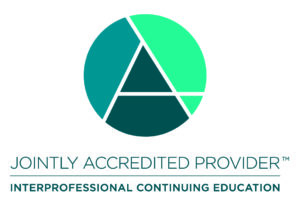
ACT Daily
Cultivating client psychological flexibility in everyday living
Life is complex. Everyone struggles.
And, sometimes, everyone needs a little help.
Many therapeutic approaches are oriented around the treatment of disorders. They present a process in which a practitioner determines a diagnosis and applies a treatment regimen based on that diagnosis.
But not all clients present with identifiable disorders. In fact, many are feeling stuck, lost, or in pain because of the normal challenges of everyday life.
So, if there’s no diagnosis to be had, how do you choose a path forward?
That’s where acceptance and commitment therapy (ACT) can be a true asset to your practice.
More often than not, the reason people find themselves stuck or lost isn’t because of the painful or challenging experience itself…
But because the rigid effort to avoid that pain ends up shrinking their world and cutting them off from what they care about most.
ACT aims not to rid people of pain or simply make them “feel good,” but to change their relationship to pain. ACT focuses on developing psychological flexibility, or the ability to mindfully encounter challenging thoughts and feelings. As clients become more open to difficult experiences, they can ground themselves in the present moment and redirect energy toward their values.
By incorporating ACT methods into their practice, practitioners can gain a new, effective approach to a wide range of therapeutic situations, from working with profound suffering and trauma, to helping clients flourish in the face of daily struggles.
Inside the Course
In our new live online course, Daily ACT: Cultivating Client Psychological Flexibility in Everyday Living, you’ll learn how an ACT approach can help you and your clients navigate the struggles everyone faces in life. Over the course of 4 experiential sessions, you’ll gain a better understanding of the psychological flexibility model, what it looks like in the therapy room, and how you can help your clients apply it in their multifaceted, complex lives. And you’ll learn powerful strategies you can teach your clients to help them thrive in every domain of daily life, including health, family, work, relationships, intellectual growth, and community.
Led by author, clinical psychologist, and expert ACT trainer Dr. Diana Hill, this course will take you through the 6 core psychological processes with an overarching focus on compassion. She’ll teach you storytelling, metaphor, and body-oriented techniques that you can incorporate into your practice, and show you how you can adapt these approaches based on the specific needs of your client.
A major aim of this course is to help you explore how to fully embody an ACT approach and discover who you are as an ACT practitioner. You’ll discuss what it is you already do well, how to lead from those strengths, and build confidence with opportunities to push your growth edges.
And you’ll gain a better understanding of how emotional avoidance can affect all aspects of life — even for practitioners in session — and how the integration of ACT practices in your own life can cultivate deeper growth and inform your therapeutic work.
Over the course of 4 interactive sessions, you’ll learn…
- The fundamentals of the psychological flexibility model and the 6 core processes
- The role of experiential avoidance in suffering and how to identify common experiential avoidance strategies
- Ways to cultivate mindfulness practices in each of the domains of everyday life
- Key skills you can teach to clients for staying they can apply in their day-to-day
- Approaches to acceptance work that incorporate mind, body, and behavior techniques
- How to utilize story and metaphor to connect more deeply with clients, and how to spot inflexible self-stories
- Methods for motivating clients through values and committed action that can help them step forward into richer, more meaningful experiences
You’ll leave this course equipped with the tools to integrate ACT into your therapeutic work in yout very next session, and the flexibility to adapt it to life’s complexities.
Join us inside the course, and discover how ACT can help you and your clients thrive in all aspects of life.
This training is worth 8 CE credit hours if attended live. While we can only provide CE to those who are present – i.e. logged in – for live presentation(s), all Praxis webinars are recorded for later viewing. Registrants may then access these recordings at any time for up to six months from the conclusion of the training to which they pertain.
Prior to registering, please review speaker-planner conflict of interest disclosures and complete CE information.
Session 1 | March 1, 2022, 1 PM—3 PM EST
Introduction
Overview of psychological flexibility and it’s benefits in clinical practice
Being Present
Session 2 | March 8, 2022, 1 PM—3 PM EST
Acceptance
Values
Session 3 | March 15, 2022, 1 PM—3 PM EDT
Cognitive Defusion
Perspective Taking
Session 4 | March 22, 2022, 1 PM—3 PM EDT
Committed Action
Integration
Participants will be able to:
- Describe psychological flexibility and list its 6 core processes
- Describe the benefits of being present, and when it matters most
- Define what acceptance means in ACT and what values are in ACT
- Describe the role of experiential avoidance in suffering, and identify common experiential avoidance strategies
- Discuss the relationship between values and pain
- Describe the paradox of thought suppression
- Describe cognitive defusion and discuss how to lead clients in 3 experiential exercises using cognitive defusion techniques
- Describe why committed action is falling on purpose
- Discuss how the ACT processes work together and influence each other.
Please review complete CE and conflict-of-interest disclosure information prior to registering. This live online course is sponsored by Praxis Continuing Education and Training and is approved for 8 CE Hours by the following listed below. There was no commercial support for this activity. None of the planners or presenters for this educational activity have relevant financial relationship(s) to disclose with ineligible companies whose primary business is producing, marketing, selling, re-selling, or distributing healthcare products used by or on patients.
Praxis CET maintains responsibility for the program with the CE approvals outlined below:
Joint Accreditation: In support of improving patient care, Praxis Continuing Education and Training, Inc is jointly accredited by the Accreditation Council for Continuing Medical Education (ACCME), the Accreditation Council for Pharmacy Education (ACPE), and the American Nurses Credentialing Center (ANCC), to provide continuing education for the healthcare team.
In support of improving patient care, Praxis Continuing Education and Training, Inc is jointly accredited by the Accreditation Council for Continuing Medical Education (ACCME), the Accreditation Council for Pharmacy Education (ACPE), and the American Nurses Credentialing Center (ANCC), to provide continuing education for the healthcare team.
 IPCE: This activity was planned by and for the healthcare team, and learners will receive 8 Interprofessional Continuing Education (IPCE) credit for learning and change.
IPCE: This activity was planned by and for the healthcare team, and learners will receive 8 Interprofessional Continuing Education (IPCE) credit for learning and change.
Nursing: Praxis Continuing Education and Training, Inc designates this activity for a maximum of 8 ANCC contact hours.
Physicians: Praxis Continuing Education and Training, Inc designates this live activity for a maximum of 8 AMA PRA Category 1 Credits™. Physicians should claim only the credit commensurate with the extent of their participation in the activity.
Psychologists: ![]() Continuing Education (CE) credits for psychologists are provided through the co-sponsorship of the American Psychological Association (APA) Office of Continuing Education in Psychology (CEP). The APA CEP Office maintains responsibly for the content of the programs.
Continuing Education (CE) credits for psychologists are provided through the co-sponsorship of the American Psychological Association (APA) Office of Continuing Education in Psychology (CEP). The APA CEP Office maintains responsibly for the content of the programs.
Social Workers: As a Jointly Accredited Organization, Praxis Continuing Education and Training, Inc is approved to offer social work continuing education by the Association of Social Work Boards (ASWB) Approved Continuing Education (ACE) program. Organizations, not individual courses, are approved under this program. State and provincial regulatory boards have the final authority to determine whether an individual course may be accepted for continuing education credit. Praxis Continuing Education and Training, Inc maintains responsibility for this course. Social workers completing this course receive 8 clinical continuing education credits.
Drug and Alcohol Counselors: This course has been approved by Praxis Continuing Education and Training, Inc, as a NAADAC Approved Education Provider, for 8 CE hours. NAADAC Provider #165310, Praxis Continuing Education and Training, Inc, is responsible for all aspects of its programming.
National Counselors:  Praxis Continuing Education and Training, Inc. has been approved by NBCC as an Approved Continuing Education Provider, ACEP No. 6759. Programs that do not qualify for NBCC credit are clearly identified. Praxis Continuing Education and Training, Inc. is solely responsible for all aspects of the programs.
Praxis Continuing Education and Training, Inc. has been approved by NBCC as an Approved Continuing Education Provider, ACEP No. 6759. Programs that do not qualify for NBCC credit are clearly identified. Praxis Continuing Education and Training, Inc. is solely responsible for all aspects of the programs.
NY Social Workers: Praxis Continuing Education and Training, Inc is recognized by the New York State Education Department’s State Board for Social Work as an approved provider of continuing education for licensed social workers #SW-0467
NY Counselors: Praxis Continuing Education and Training, Inc. is recognized by the New York State Education Department’s State Board for Mental Health Practitioners as an approved provider of continuing education for licensed mental health counselors. #MHC-0198.
NY Psychologists: Praxis Continuing Education and Training, Inc. is recognized by the New York State Education Department’s State Board for Psychology as an approved provider of continuing education for licensed psychologists #PSY-0002.
None
A-Tjak, J. G. L., Morina, N., Topper, M. & Emmelkamp, P. M. G. (2021). One year follow-up and mediation in cognitive behavioral therapy and acceptance and commitment therapy for adult depression. BMC Psychiatry, 21(41). https://doi.org/10.1186/s12888-020-03020-1
A-Tjak, J. G., Davis, M. L., Morina, N., Powers, M. B., Smits, J. A., & Emmelkamp, P. M. (2015). A meta-analysis of the efficacy of acceptance and commitment therapy for clinically relevant mental and physical health problems. Psychotherapy and Psychosomatics, 84(1), 30-36.
Barrett, K., O’Connor, M., & Mchugh, L. (2019). A Systematic Review of Values-Based Psychometric Tools Within Acceptance and Commitment Therapy (ACT). The Psychological Record, 1-29. doi: 10.1007/s40732-019-00352-7
We understand, sometimes things come up!
Praxis will offer a full refund to registrants of both live and live-online trainings who cancel their registration up to 14 days before the course or workshop start date, minus an administrative processing fee of $30 for a 2-day workshop or online course, and a $50 fee for a 4-day workshop. If cancelled within 14 days, no refund will be issued, however, a credit for the same amount will be applied toward another learning product, which expires within 1 year. Please email us at online@praxiscet.com to cancel a registration.


